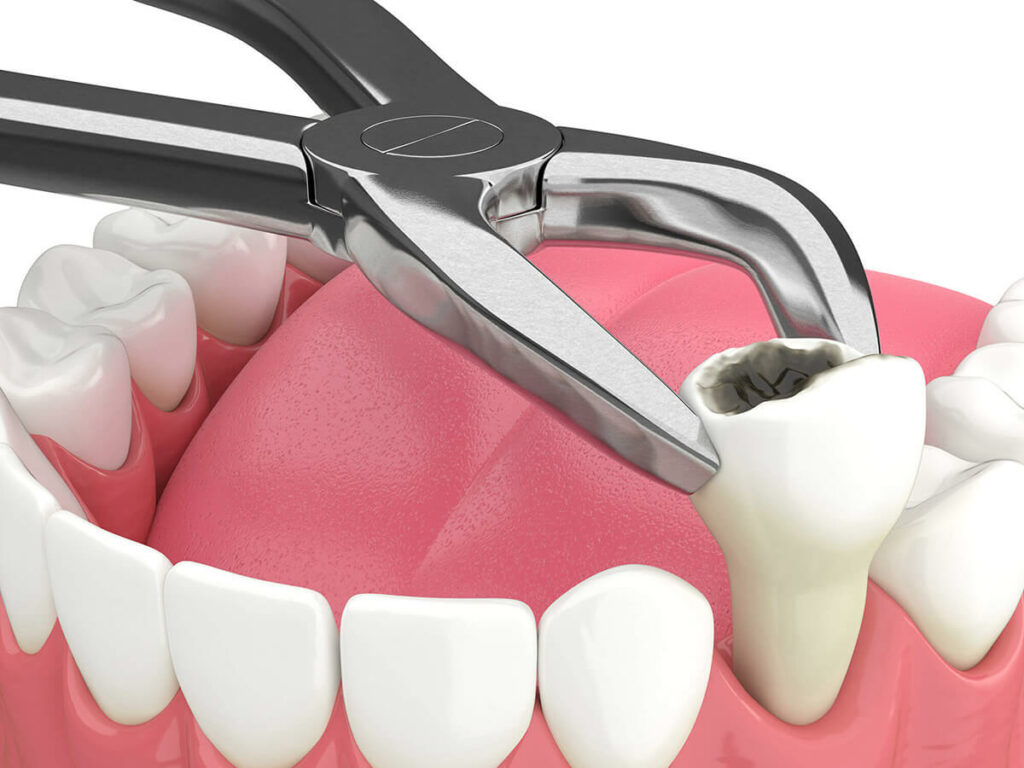Tooth Extractions
At Thrive Dental Associates, we offer professional tooth extractions to address severe decay, infection, and other dental issues, ensuring your comfort and promoting oral health. Trust our experienced team for safe and compassionate care.
The Process of Tooth Extractions
At Thrive Dental Associates, we provide professional tooth extractions when necessary to protect your oral health. Tooth extractions may be required for various reasons, including severe decay, infection, crowding, or damage that cannot be repaired. The extraction process begins with a thorough examination and X-rays to assess the tooth and surrounding structures. Our experienced team ensures your comfort throughout the procedure by using local anesthesia to numb the area. Once the tooth is gently removed, we provide detailed aftercare instructions to promote healing and prevent complications. Whether it’s a simple extraction or a more complex surgical removal, you can trust Thrive Dental Associates to deliver safe and compassionate care. Our goal is to help you maintain a healthy, pain-free smile.

-
How can I prevent dry socket after tooth extraction?
To prevent dry socket after a tooth extraction, follow these guidelines:
- Avoid Straws and Smoking: Refrain from using straws or smoking for at least 48 hours, as the suction can dislodge the blood clot.
- Maintain Oral Hygiene: After 24 hours, gently rinse your mouth with warm salt water to keep the area clean, but avoid vigorous rinsing.
- Follow Dietary Recommendations: Stick to soft foods and avoid hot, spicy, or hard foods that can irritate the extraction site.
- Follow Post-Op Instructions: Adhere to your dentist’s aftercare instructions carefully, including taking prescribed medications and attending follow-up appointments.
- Rest and Protect the Area: Avoid heavy physical activity for a few days and be cautious not to disturb the extraction site with your tongue or fingers.
Following these steps can help ensure proper healing and minimize the risk of developing dry socket.
-
When and why are wisdom teeth removed?
Wisdom teeth are often removed during the late teens or early twenties, although they can be extracted at any age if they cause problems. They are typically removed because they can become impacted, meaning they don’t have enough space to emerge properly, and can lead to pain, infection, and damage to adjacent teeth. Due to their difficult-to-clean location, wisdom teeth can also cause overcrowding and misalignment and increase the risk of cavities and gum disease. Removing them preemptively helps prevent these potential issues and maintains overall oral health.
-
What causes the need for tooth extraction?
Tooth extractions may be necessary for several reasons:
- Severe Decay: When a tooth is extensively decayed and cannot be restored with fillings, crowns, or other treatments.
- Infection: An infection that reaches the pulp of the tooth and cannot be treated with root canal therapy may require extraction to prevent the spread of infection.
- Crowding: Teeth may be removed to alleviate overcrowding and create space for proper alignment, often in preparation for orthodontic treatment.
- Gum Disease: Advanced periodontal disease can weaken the supporting tissues and bone, making extraction necessary.
- Damage: A tooth that is severely cracked or broken beyond repair may need to be extracted.
- Impacted Teeth: Wisdom teeth or other teeth that are impacted and causing pain or risk of infection may need to be removed.
Consulting with your dentist can help determine the best course of action for maintaining your oral health.
Questions About Tooth Extractions?
If you have any questions about tooth extractions, contact us or schedule an appointment online. We also provide various preventative, restorative, and cosmetic dental services in Milton, FL.
